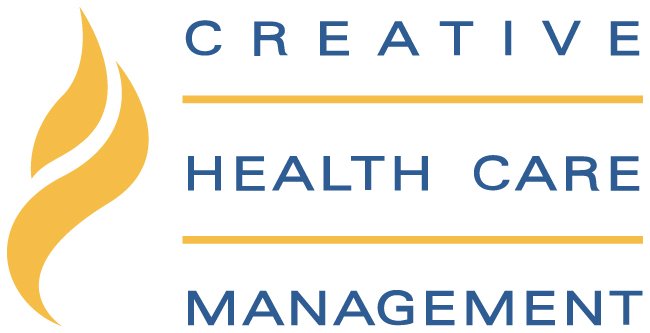Even though people come from different cultural backgrounds, everyone deserves the same quality of healthcare. However, cultural differences can lead to confusion, misunderstandings, and health disparities in the level of care patients receive. This makes cultural competence important in health and human services.
Cultural competence is the ability to work effectively cross-culturally with people from different cultural groups. It involves developing an understanding of the cultural backgrounds of your patients and being aware of how those cultural contexts affect their views, beliefs, values, norms, needs, language, and communication styles.
Healthcare providers must have a comprehensive understanding of cultural competency to provide the best possible care for their patients. Learning about different cultures, beliefs, and practices can help ensure everyone receives the same quality of care regardless of cultural background or identity.
This blog post answers the question, “What is cultural competence?” and explores its significance in the healthcare setting and addresses how to become more culturally competent to ensure all patients receive the same level of quality care.

Defining Cultural Competence
Before delving into cultural competence, it’s essential to understand the meaning of culture and competence.
Culture refers to the integrated patterns of human behavior, customs, values, thoughts, beliefs, actions, and institutions that are shared by a specific ethnic, racial, religious, or social group of people. These cultural beliefs influence how people think, behave, and perceive the world.
On the other hand, competence is defined as the ability to function effectively and efficiently in any given situation. It involves the knowledge, skills, ability, behavior, and attitude needed to accomplish a task or activity.
Cultural competence is the ability to interact effectively with people from different cultural backgrounds while respecting their beliefs, values, and norms. It also involves cultural awareness, cultural sensitivity, and the ability to adapt your practices to meet the needs of culturally diverse individuals.
Cultural competence starts with self-awareness and an understanding that different people have different ways of looking at and interpreting the world. It also involves self-reflection, recognizing our beliefs and biases, learning about other people’s cultures, developing cultural sensitivity, and adapting to cross-cultural differences.
Cultural competence requires action, not just awareness and understanding. It goes beyond just knowing about another person’s culture and focuses on practical applications and implementation of cultural knowledge in everyday life. This includes actively learning about other cultures, being open to feedback from culturally diverse individuals, and utilizing available resources to become more culturally competent.
Additionally, culture and language often go hand in hand, as the National Prevention Information Network (NPIN CDC) emphasizes. It defines cultural and linguistic competence as “a set of congruent behaviors, attitudes, and policies that come together in a system, agency, or among professionals that enables effective work in cross-cultural situations.”
This stresses the importance of overcoming language barriers and focusing on cultural diversity to provide culturally appropriate care tailored to the individual’s needs and beliefs.

The Importance of Cultural Competence
Cultural competence is an essential skill set, especially in the healthcare setting. It ensures all patients receive quality care despite coming from different ethnic backgrounds and that all healthcare providers respond appropriately to patients’ needs.
Treating a patient from a different culture with empathy and respect can help build trust and strengthen communication, leading to better outcomes. Health providers who understand the ethnic background of their patients are better equipped to identify and address potential health disparities.
Shifting Demographics
America is a melting pot of ethnically diverse populations, including Hispanics, African Americans, Native Americans, Asian Americans, Pacific Islanders, and more. The U.S. population is also continuously shifting and becoming more culturally diverse.
For example, the U.S. Census Bureau predicts the country will become a majority-minority nation by 2043, projecting significant growth in minor ethnic and social groups. While the non-Hispanic white population will remain the largest group, being a majority-minority country means no single group will be the majority.
This changing demographic also means that there will be more diversity in religion, language, sexual orientation, and more. Cultural competence allows healthcare professionals to meet these diverse individuals’ and communities’ unique needs.
Evolving Society and Workforce
While society is changing, so is the workforce. Having a diverse staff in your organization is crucial, but it’s just as critical to recognize the importance of cultural competence and incorporate it into the organizational culture. When every employee is open to different ideas, it leads to more collaboration, respect, and understanding within the organization. This also increases efficiency and productivity in the workplace and enhances creativity and innovation as different perspectives come together.
Cultural competence helps foster a safe environment where everyone feels welcome and included regardless of their backgrounds or beliefs. This makes building relationships with the communities you serve much easier since they feel more respected and heard.
It’s also crucial for key stakeholders to incorporate cultural competence in policy-making. Policies are more likely to be effective when the perspectives of people from different backgrounds and cultures are included. This also helps eliminate power imbalances and create a more equal and open environment.
Preventing Hate Crimes and Discrimination
Hate crimes and discrimination continue to be significant issues in the country, especially for specific populations, such as people of color and LGBTQ individuals. In the U.S., there were 10,840 incidents and 12,822 victims of hate crimes reported in 2021 alone, making discrimination a rampant issue that targets marginalized groups and perpetuates inequality.
Additionally, disrespectful language, racial slurs, stereotyped prejudice, and inappropriate behavior can immensely impact physical and mental health.
Cultural competency can help reduce these biases and foster positive behaviors and attitudes toward different communities and cultures. Healthcare professionals can use their cultural competency skills to ensure everyone is treated with respect and dignity, regardless of their race, gender identity, sexual orientation, and other individual characteristics.
Minority health disparities are also a major issue, as there are significant differences in healthcare access and quality between minority and majority populations.
Cultural competency can bridge those gaps by helping healthcare professionals understand the unique needs of different communities and treat them with equal respect and care they deserve.

Differentiating Cultural Competence and Cultural Humility
It’s vital to differentiate between cultural competence and cultural humility. While both involve developing an understanding of different cultures, there are key differences.
Cultural competency is a set of skills that can be learned through education, training, and practice. It focuses on building knowledge around various cultures and developing the ability to interact with people from different backgrounds.
Cultural humility goes beyond understanding different cultures, as it involves acknowledging and respecting one’s biases and privileges when interacting with others. This “self-first” approach focuses on developing a mindset of openness, understanding, and respect while being aware of the power dynamics between people from different backgrounds.
Although cultural competence is rooted in good intentions, it can lead to stereotyping and alienating specific individuals or groups. On the other hand, cultural humility is more inclusive. It fosters mutual understanding and respect but is a complex and lifelong process that may take a long time to achieve.
Developing cultural competence can be a helpful first step, but it should be complemented with a mindset of cultural humility.
It’s also crucial to remember that cultural competence is a developmental process where an individual or organization works to learn and evolve over an extended period. This personalized journey places both individuals and organizations at different points in the cultural competence continuum.
Assessing Organizational and Practitioner Cultural Competence
Assessing cultural competence at the organizational level is one of the most critical steps in fostering a culturally inclusive environment. Organizations should institutionalize cultural knowledge and assess their existing policies, procedures, and practices to identify potential barriers limiting access to care for minority groups. Doing so helps measure the organization’s progress in becoming more culturally efficient and identifying areas of improvement.
A study in the International Journal of Intercultural Relations discusses 12 competencies organized into four competency domains.
Diplomatic Mindset
- Maintains a mission orientation
- Manages attitudes toward culture
- Understands self in cultural context
Cultural Reasoning
- Copes with cultural surprises
- Takes the perspective of others in intercultural interactions
- Develops cultural explanations of behavior
Intercultural Interaction
- Engages in disciplined self-presentation
- Plans intercultural communications
- Acts with limited cultural knowledge
Cultural Learning
- Is self-directed in learning about cultures
- Develops reliable information sources
- Reflects and seeks feedback on intercultural encounters
With the help of instruction, these competencies can increase intercultural adjustment and improve cross-cultural effectiveness. They can be included in any cultural competency assessment, as they provide a comprehensive view of an organization’s ability to effectively interact with individuals from different cultural backgrounds.
Additionally, companies can use Donna Wright’s Competency Assessment Model as a helpful tool for an outcome-focused and accountability-based approach to assessing cultural competence.
The model involves collaboration between managers and staff to identify competencies, employee-centered verification, and focus on the organizational mission and positive employee behavior.
This competency assessment model allows companies to determine which competencies to assess, make culture-specific modifications, measure the effectiveness of their programs and procedures, and improve the overall organization’s cultural competency. It also helps hold individual employees and the whole organization accountable for their actions, as it provides clear performance criteria and objectives.
Tips for Building Cultural Competency
Building cultural competence requires a conscious effort to become aware of and unlearn prejudices, biases, and stereotypes. Here are some tips to help organizations foster an inclusive environment:
Evaluate the current situation:
Organizations should take the time to examine their current policies, practices, and procedures to identify potential areas of bias or unnecessary barriers that could be preventing minority populations from accessing care. This allows them to devise a plan for improving their cultural competence and create a defined set of criteria for evaluating progress.
Encourage discussion:
Organizations should strive to create an environment of open dialogue between employees and management. Allowing discussions about different cultural behaviors, values, and beliefs can help employees become more aware of their prejudices and develop the skills needed to interact with people from other cultures.
Improve cultural knowledge:
Increasing cultural awareness and knowledge is essential to understanding different cultures. Organizations should provide employees with access to resources, such as books, articles, workshops, seminars, or training programs on multiculturalism, to become more aware of biases and prejudice and build their understanding of other cultures.
Practice active listening:
Active listening involves genuinely focusing on what the other person is saying and responding appropriately. Encouraging employees to actively listen and practice active questioning can help them communicate effectively, creating positive intercultural dialogue and fostering understanding between individuals from differing backgrounds.
The Takeaways
Cultural competence is an essential skill for organizations to master. Effectively interacting with people from different backgrounds helps create a safe, inclusive, and positive environment; encourages teamwork and collaboration; and fosters mutual respect. It also allows healthcare providers to build relationships with their patients and provide the best care possible.
To build your organization’s cultural competence, Creative Health Care Management provides various resources and training to help organizations enhance their cultural competence. We can help you foster a better understanding of different cultures, improve patient well-being, and create a more positive healthcare experience for all.
Contact us today to learn more.
Sources
https://www.betterup.com/blog/cultural-humility-vs-cultural-competence
https://extensionpublications.unl.edu/assets/html/g1375/build/g1375.htm
https://www.indeed.com/career-advice/career-development/cultural-competence
https://extension.psu.edu/what-is-cultural-competence-and-how-to-develop-it
https://npin.cdc.gov/pages/cultural-competence
https://www.census.gov/newsroom/releases/archives/population/cb12-243.html
https://www.justice.gov/crs/highlights/2021-hate-crime-statistics
https://www.globalcognition.org/articles/rasmussen-IJIR15-culture-general-competence.pdf
https://chcm.com/solutions/competency/
https://chcm.com/solutions/relationship-based-care/ is all about culture
https://chcm.com/solutions/belonging-diversity-equity-and-inclusion-bdei/





